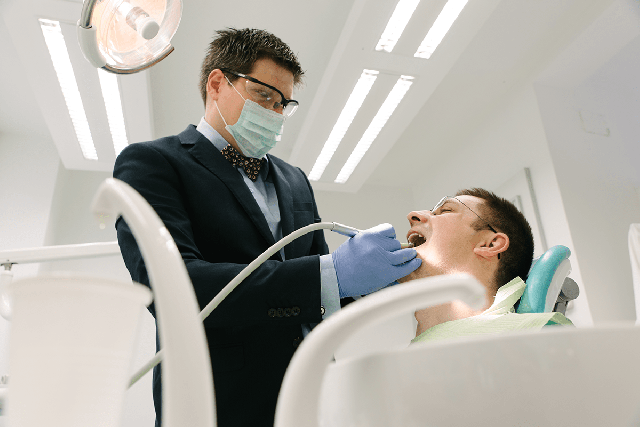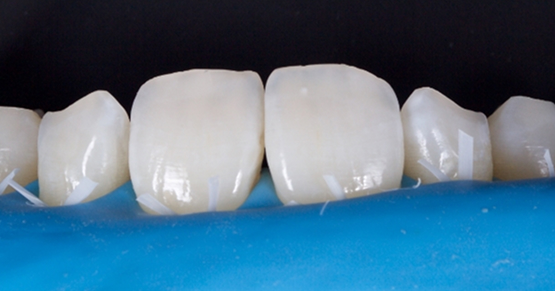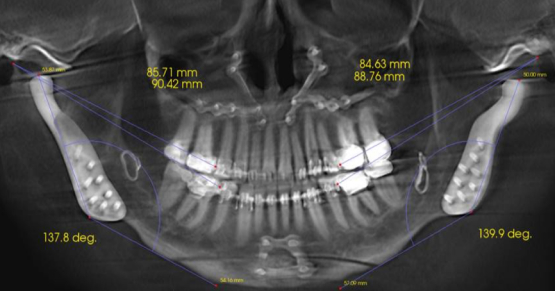How To Choose the Right Dental Practice Consultant

Dentistry is one of the more challenging professions to master. Not only do you have to learn to become an excellent clinician, but you also must understand and succeed at your business’s various aspects.
Most dentists are more than just clinicians — those in private practice especially must be business people, managers, accountants, psychologists, educators, and team leaders. Even the most technically accomplished clinician can fail in creating a successful practice and office culture; this is especially true if they fail to understand and implement practical skills in communication, team leadership, business systems, capital expenditures, profit and loss statements, business growth strategies, and marketing.
The right consultant can help you ascertain how to implement a comprehensive and sound dental business practice plan, understand your practice’s financial and patient care numbers, create office systems, and build an office culture that enhances your business success. They can assist you in uncovering what’s preventing you from reaching your goals by helping you see what you can’t see for yourself.
Most of us were taught only to be a clinician in dental school; many of us never learned or acquired the necessary skills to evaluate and manage the business of dentistry. Consultants can help you make the necessary changes in your business to prosper. The key to success is openness to change and the willingness to listen and implement suggested recommendations. Simply having the information won’t change anything in your practice — you must use the knowledge and take action. A good consultant will hold you accountable for positive change and successful implementation. They will also help you navigate any roadblocks that will likely arise while you embark on this journey.
Realizing I needed a dental practice consultant
I can personally attest to the power of a consultant. Eight months ago, if asked, I would have told you my practice was healthy, strong, and thriving. Yet somewhere in the back of my mind, I had questions:
- Why do I feel like I have nothing to show for all my education, hard work, and passion to my patients, staff, and the practice?
- Are my practice’s core values and mission statement not being heard or seen by the community and even some patients?
- Why do I sometimes struggle with cash flow, making payroll, and deciding which bills to pay and when so I don’t get behind?
One slow month in production or collections would deplete my reserves, making me nervous and stressed about finances. Outside of the financials, I felt like I had to oversee every aspect of the office. I was getting tired and frustrated. These responsibilities and accompanying stresses took too much of my time, which should have been spent in the operatories doing the dentistry I was passionate about.
I realized I had a problem I didn’t know how to correct. I also knew I was unhappy with my office culture. With corporate dentistry coming to a neighborhood near us, I knew the time to act and make changes was imperative to my future success. I knew it was essential to create a practice identity synonymous with high-quality, patient-centered care; however, I did not know how to implement this idea.
A Spear Visiting Faculty member suggested I hire a dental consultant based on his own similar experiences. I took this person’s advice, but the key was finding the right match for me.

Finding the right dental practice consultant
At the time, I would have told you consultants are people who come into your office, tell you all the things you need to change, and solve all your problems for a fee often approaching $50,000. This approach wouldn’t work for me, because I’ve spent years trying to create and implement the “Spear Model.” I wasn’t going to let anyone persuade me to change the way I practice and the core values I hold so dear.
At Spear Education, the ideals of being unique, demanding excellence from ourselves, and delivering superior care have been instilled in us. These ideals and beliefs are exemplified in how we deliver patient care. In doing so, we can create a new and unique experience for our patients. We are passionate about delivering optimal dental health, creating an efficient and dynamic office, and always displaying our core values and mission — from the first phone call to when a patient walks into the office, throughout a patient’s evaluation and treatment, and finally to payment and aftercare. I felt, and still feel, that this culture of “patient-centered and optimal dental care” is more important than the money I make. However, the bottom line matters, and I needed to find a way to make both these worlds coexist.
One approach that can safeguard high-quality, patient-centered care while ensuring financial success is creating practice management systems — business principles used in the formation, operation, or management of a dental facility. Each office will have similar systems but the message behind each will vary. It’s the message behind the system that is critical. How you, your staff, and your patients perceive that message will determine if it will be implemented successfully. Each office message must be unique, thus necessitating the creation of unique systems. When creating your practice management system, you must know who you are, why you practice, and your core values. The right consultant can guide you so that all can feel and see your message consistently and predictably.
So, the real question is, how do you pick the right consultant? The answer is this: Know what questions to ask and, even more importantly, your mission and core values.
You should try to answer the following questions:
- Who are you?
- What you are you passionate about?
- What do you believe in?
The mark of a great consultant is one who’s willing to become part of your team rather than the team leader. If you have a consultant who looks at your numbers and says, “Do this and change that,” you have created a scenario in which you follow their mission and values. Instead, your consultant should listen and understand your values. Only then can they help you and your team create and implement the beliefs, mission, and core values you hold dear through your office systems.
What practice consultants should do for you
Consultants can help create systems and a culture to improve practice efficiency and profitability. These systems should help you understand and practice finances such as payroll and overhead, and can improve office flow, patient care, and treatment acceptance.
However, before consultants can do this, you must work with your team to create each system stemming from the ideals of your core beliefs. If your team isn’t part of developing these systems, they won’t own them. If they don’t own them, they’ll quickly return to old habits, and you won’t be able to make the necessary changes you hoped to achieve. When you and your staff create each system, the team commits to new care delivery processes, becoming accountable for their implementation and success.
In addition to helping you define new systems, a consultant also should help you create a positive culture in which all team members hold each other accountable to achieve your office’s mission. I can’t overstress the importance of accountability. Each staff member has to understand they play an important role in making the office grow and become more profitable.
To further understand the power of office culture, I recommend reading Patrick Lencioni’s books The Advantage, The Five Dysfunctions of a Team, and The Ideal Team Player. These three books became the foundation of how my office and team work together toward a common goal. The messages from these books provided me with the insight to convey my goals and visions to the consultant, which enabled us to create office systems about which we all were passionate and to which we were all committed to adhering. It was not an easy process, but it was critical to the change we all desired.
My consultant is always guiding, educating, and reminding my staff that each person in the office is responsible for the office’s success. Each person is now responsible for each other and the patients, ensuring our mission statement is carried out. A failure by one means a failure by all. It takes great culture to make that a reality, and patients can, and will, see and appreciate it.

The results of hiring a dental practice consultant
With time and hard work, we are creating an entirely new practice culture, and patient feedback has been overwhelmingly positive. Patient referrals started to come in, because patients told their friends and family about their positive experiences.
Our systems and culture created this. Everyone is now accountable to help manage overhead, which in turn helps staff understand and explain our fees. They are no longer nervous or uncomfortable discussing comprehensive treatment because they believe in treating patients comprehensively and optimally. Their insight into the office’s numbers made them appreciate each person’s role, and they began to help each other so the office could succeed. With a better system and culture, there is better teamwork. The outcome is a more profitable and enjoyable work environment.
In only eight months, I’ve seen the benefit and advantage of having the right consultant as part of my team. I can now say my perception regarding consultants was misguided. The changes I’ve been able to make have been profound not only for me but for my staff and patients as well.
It’s important to remember that a dental consultant is not going to magically fix things. It takes a high-functioning team, hard work, and a willingness to make difficult changes —many of which involve the dentist him/herself.
The first step is being committed to change. Clinical skills alone aren’t enough in today’s challenging environment; you must combine technical skills with a strong office culture and practice-management systems.
I am fortunate to have learned from personal experience how a consultant can help make desired practice changes. In only a few months, I was able to significantly change my office cash flow and understand, interpret, and manage office finances, all while creating the systems that will ensure a successful and enjoyable office environment.
More importantly, I collaborated with someone who took the time to listen to my mission statement and core values and then showed my team a path to make them come to life through our office culture and patient care. I can genuinely say it has been the best investment I have ever made.
Questions to ask prospective practice consultants
If you’re considering hiring a consultant, asking candidates the questions below can help you decide if they’re the correct match for you and your practice needs.
- Will your systems be based on your or my core values and mission statement?
- How will you help me create and understand the ideal practice numbers and where can we decrease our overhead?
- How do you define profitability?
- What are your feelings on team culture, and what are the essential elements to create it?
- How can you create accountability and ownership of systems?
- How can you help us express our office core values both internally and externally to tell our story consistently?
- How can you improve how the office communicates with both new and established patients?
- How will you evaluate the dental hygiene department? (This is critical and has significant profit potential for every general dental office. For your dental hygiene department to be profitable, you must have a philosophy of care for disease intervention at the earliest stage and a formula to prevent systemic disease for your patients.)
SPEAR NAVIGATOR
Transform how your practice runs by engaging the team through
coaching and training
A guided path to excellence through structured coaching and self-guided resources that will align your team, streamline processes and drive growth. Transform your practice by implementing Spear’s proven playbooks for developing and retaining a high-performing dental team.

By: Andrew Cohen
Date: January 28, 2017
Featured Digest articles
Insights and advice from Spear Faculty and industry experts


